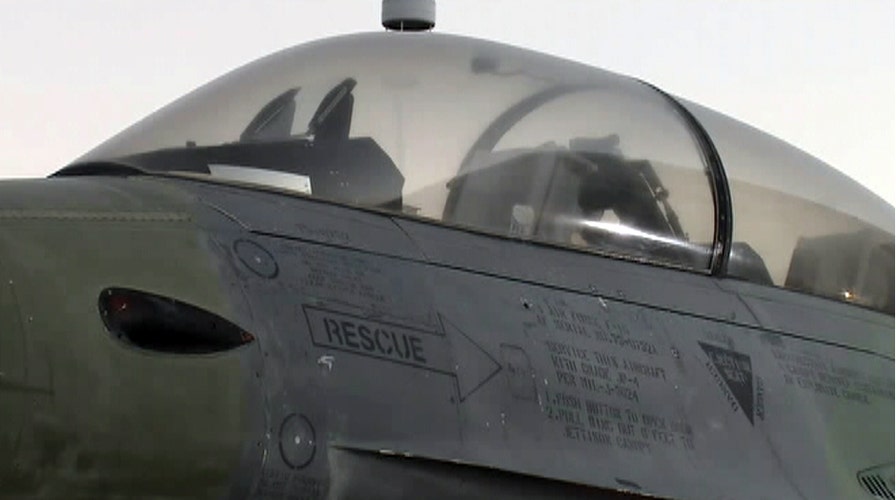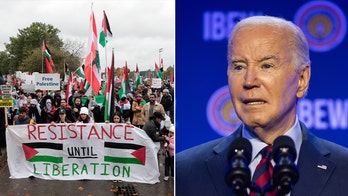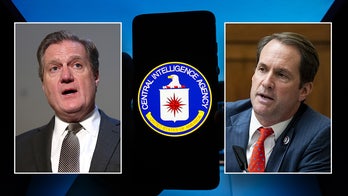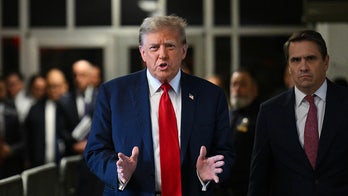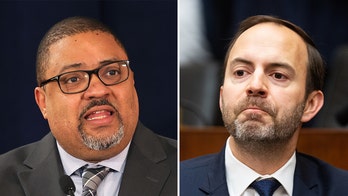Four more F-16 fighter jets left the U.S. on Thursday headed for Egypt as part of a foreign aid package that has generated controversy given the political upheaval in the Mideast country.
Critics say the military aid should stop because the president Egyptians elected last year has led the Muslim Brotherhood, called President Obama liar and urged that hatred of Jews be instilled in children.
A source who works on the naval air base in Fort Worth, Texas, confirmed to FoxNews.com the departure of the state-of-the-art fighter planes. The new shipment brings the total number of F-16 jets given to Egypt this year to 12.
Eight more F-16s will be given to the Egyptian government before the end of the year as part of a billion-dollar foreign aid deal signed in 2010 with then-Egyptian President Hosni Mubarak, a longtime U.S. ally. The U.S. also will send 200 Abrams tanks.
Critics, including several in Congress, say it doesn't make sense to follow through with the package. While current Egyptian President Mohammad Morsi has toned down his rhetoric since his election last summer, in 2010 Morsi attacked Obama for supporting Israel.
“One American president after another — and most recently, that Obama — talks about American guarantees for the safety of the Zionists in Palestine," Morsi, then a leader of the Muslim Brotherhood, said on Egyptian TV in reaction to Obama's 2009 speech in Cairo. "[Obama] was very clear when he uttered his empty words on the land of Egypt. He uttered many lies.”
In the comments translated by the Middle East Media Research Institute, Morsi also urged that children be taught to hate Jews.
“Dear brothers, we must not forget to nurse our children and grandchildren on hatred towards those Zionists and Jews, and all those who support them," he said in 2010. "They must be nursed on hatred. The hatred must continue.”
Some in Congress worry that the F-16 gift betrays America’s friendship with Israel.
“Friends don't send U.S. taxpayer- funded F-16s and tanks to the enemies of their friends,” Rep. Gohmert, R-Texas, told FoxNews.com.
The State Department declined to comment on the specific movement of any military equipment, but officials released a statement to FoxNews.com defending the United States' "strategic" ties to Egypt, "with whom we have a long history of close political-military relations that have benefited key U.S. interests."
The statement also noted that U.S. military cooperation supports the peace treaty between Egypt and Israel.
"The Egyptian military has long had cordial ties with Israel and is a pillar of support for the peace treaty within the Egyptian Government," the statement said. “We are committed to maintaining Israel’s Qualitative Military Edge in the region. These F-16s represent no threat to Israel because Israel has more advanced aircraft and weapons than the F-16."
But some security experts say that aid to Egypt will simply prop up a bad regime.
"U.S. aid packages limit, rather than leverage, Washington’s ability to extract meaningful concessions from Cairo on democratic reform. Sending arms conveys a tacit indifference to Morsi’s authoritarian tendencies, including its harassment and intimidation of regime critics," said Malou Innocent, a foreign policy analyst at the Cato Institute.
She added that America also can’t afford the spending.
"American taxpayers have been Egypt’s major arms supplier, subsidizing the supply of F-16 jet fighters, M1A1 Abrams battle tanks, armored personnel carriers, Apache helicopters, and hundreds of millions of dollars in surplus military equipment."
In addition, the U.S. government also paid at least $83 million to upgrade facilities and provide training at the Egyptian military's "Cairo West Air Base" to accommodate the new F-16s.
Some security experts say the spending is worth it.
“I think this is the only way to ensure the stability of the Camp David Accords (the peace treaty between Egypt and Israel.) Is that worth it? Yes,” Anthony Cordesman, who has served as a consultant for the State and Defense departments and who holds the Burke Chair in Strategy at the Center for Strategic and International Studies, told FoxNews.com.
The planes themselves, he said, are less important than the message they send.
“Canceling a few F-16s isn't going to be a game changer in itself, but it’d change perceptions in the Arab world. They would see how quickly the U.S. could turn away when there’s a crisis," Cordesman said.
The statement from State Department officials also warned that revoking the aid could have disastrous consequences.
"Delaying or canceling deliveries of the F-16 aircraft would undermine our efforts to address our regional security interests through a more capable Egyptian military and send a damaging and lasting signal to Egypt's civilian and military leadership as we work toward a democratic transition in this key Middle Eastern state," the statement said.
